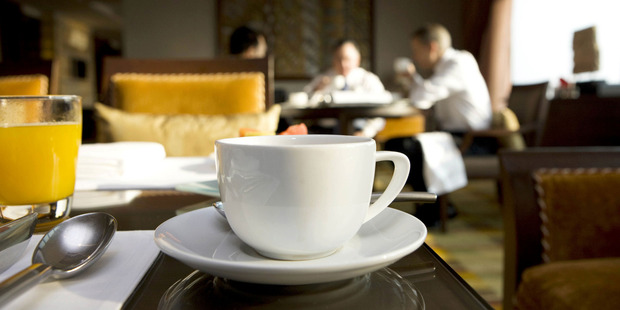
What Robyn Pearce can't fathom is why employers would need to be 'forced' to do it! Perhaps they and many of their employees don't know about the health and productivity gains we all get from regular breaks in our daily routine.
Robyn Pearce works with people around the world - both face-to-face and via webinars. Because 'sanity breaks' are part of her message she almost always ask her audiences if they take a regular lunch break, and how many take tea breaks - not just the 'grab a cuppa and take it back to the desk' kind of tea break, but a real one where they give their brain a rest, away from their desk. Typically more than 70% of the room don't do either on a regular basis. The next questions are 'how effective are you in the afternoon?' and 'how tired are you at the end of the day?' The look on most people's faces is classic - a kind of bemused 'why didn't I notice that connection before?'
Here's the explanation. Various biological rhythms flow through our body all day, all night. Ultradian rhythms are some of them. Loosely translated ultra = many and dian = day - the many rhythms of the day.They cycle continuously through our body like rolling waves - 90 - 120 - minutes up; 20 minutes down - repeated day and night.
The down cycle is not a negative thing - instead it's the rest cycle that our body needs to recharge, rebuild and to grow. If we keep pushing through these down cycles, if we don't give our body a chance to recharge, we push the poor old thing into flight or fight.
The consequence? Stress, burnout, and eventually sickness - sometimes very severe.
Without exception, every person she's challenged on this has agreed that when they push through down cycles of tiredness, thinking perhaps that they're being lazy or that it's not 'ok' to slow down for a short while, they become less effective in the afternoon and end up dragging their weary bodies home at the end of the day - not much use to themselves or loving family waiting for their share of time.
So what to do about it? Morning and afternoon tea breaks and a lunch break away from your desk - they're some of the simple solutions. And what about Winston Churchill's famous technique - the one that kept him operating at full steam through all those tough war years? He was famous for his power naps. When tired he'd pop upstairs (when he was working at Downing Street) and hop into bed for about 20 minutes.
This may not be feasible in your situation but a cup of tea is always at hand.
This may not be feasible in your situation but a cup of tea is always at hand.
Not only will employers get higher productivity by making it appropriate for people to slow down but fewer mistakes will happen.

No comments:
Post a Comment